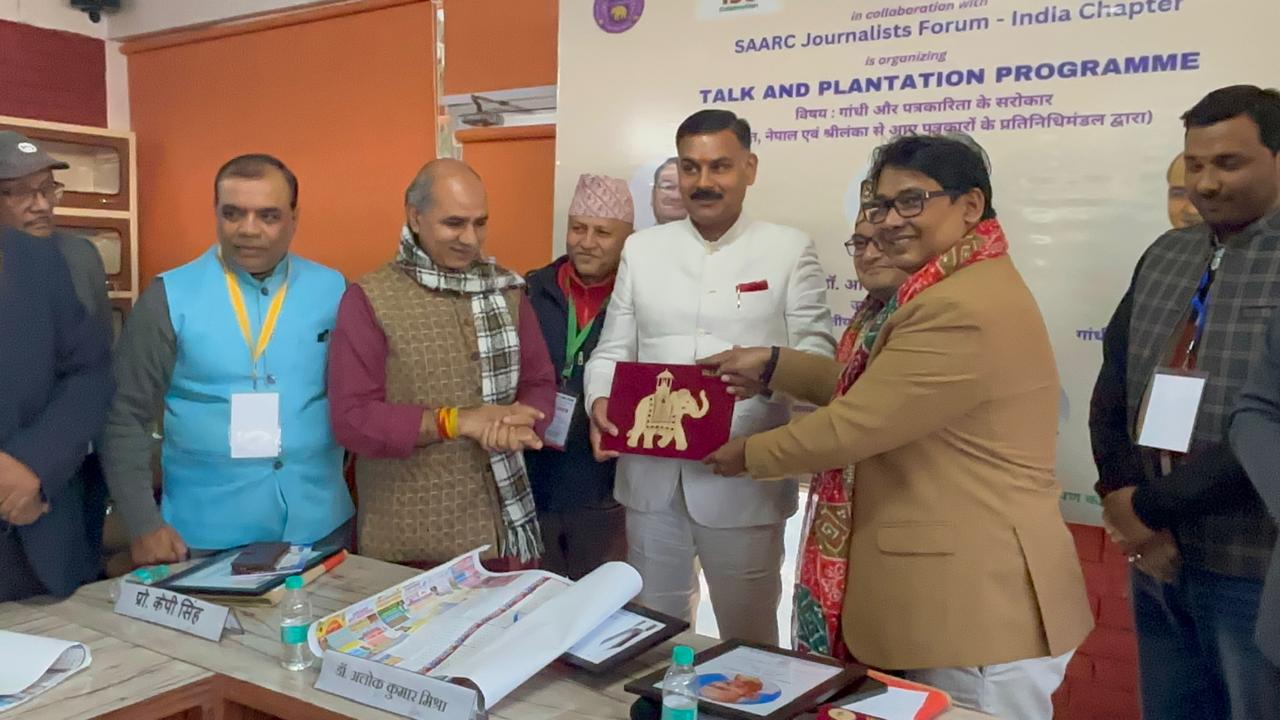News
NGOs fire heavy salvo against govt., coinciding with 48th Geneva sessions

A civil society grouping in a statement issued yesterday (13) strongly criticised the government over its human rights record. The statement was issued by over two dozens activists hours after the 48th sessions of the Geneva- based UNHRC commenced.
Identifying themselves as the Civil Society Platform (CSP), the group launched a scathing attack over accountability issues and post-war issues, including what they claimed was continuing harassment of the civil society.
Sri Lankan Collective for Consensus (SLCC), comprising representatives of several civil society groups, earlier held talks with the government. Among the government representatives were President Gotabaya Rajapaksa and Foreign Minister Prof. G.L. Peiris.
The CSP said that while the group acknowledged the efforts made by the government to meet the Covid-19 challenge, its action and inaction since has only exacerbated the challenges faced by the people. At the same time, increasing authoritarianism and militarisation, including the COVID-19 “response and the culture of impunity have eroded civic space and undermined the protection of human rights. The re-imposition of a state of emergency on the pretext of addressing food distribution is an additional concern. Resorting to promulgation of Emergency Regulations in an arbitrary manner further concentrates unrestrained power in the hands of the executive and is not conducive to democratic, inclusive and transparent decision making regarding the public good. It creates an environment in which the human rights of citizens can be further curtailed and even violated.
The group raised the government allegedly depriving the civil society the freedom to operate.
“In recent months we have witnessed an alarming shrinking of civic space in Sri Lanka. This is in a context of heightened surveillance and threats to, and harassment of human rights defenders, survivors and families of victims, such as the families of the disappeared, who advocate for protection of human rights and truth and justice. The government and its affiliates have also demonized the work of non-governmental organisations through multiple means and presented them as potential threats to national security.
“This is against the backdrop of the National Secretariat for Non-Governmental Organisations (NGO Secretariat), being brought once again within the purview of the Ministry of Defence in December 2019, and steps being taken to draft legislation to reportedly curb the activities of civil society organisations. In addition, since December 2019 state officials at the district and divisional level have brought into effect cumbersome informal and arbitrary rules by which civil society organisations have to abide to obtain approval and implement their projects. Furthermore, during meetings with NGOs at the district level, officers of the NGO Secretariat have been abusive and used disrespectful language when addressing personnel from civil society organisations. Cabinet ministers continue to use the term NGOs in a hostile manner, perpetuating the anti-NGO culture reminiscent of the repressive era when NGOs faced intimidation and threats both from the State and unidentified entities.
We note with concern the cabinet decision to replace the Voluntary Social Service Organizations (Registration and Supervision) Act No. 31 of 1980 as amended (VSSO Act). Civil society concerns in this regard which the NGO coalition working on this issue shared with the NGO Secretariat have gone unaddressed. The government’s engagement with civil society on the proposed law should not be cosmetic but meaningful and take into account the legitimate concerns of civil society. Furthermore, any new law must not restrict the rights of civil society organisations to work freely on issues of human rights and transitional justice or place undue impediments to their functioning.
The group raised the following issues in its statement:PTA, Freedom of Expression, Transitional Justice, Enforced Disappearances and Missing Persons, Arbitrary Use of Quarantine Regulations, failure on the part of the government to build confidence among the minorities and independent commissions. The group demanded an acceptable solution to the ethnic conflict, condemn the inordinate delay in investigating 2019 Easter Sunday carnage, delay in introducing reforms to the Muslim marriage and Divorce Act and burial rights for Covid-19 victims.
The following endorsed the statement:
1. Families of the Disappeared
2. Centre for Policy Alternatives
3. IMADR- Asia Committee
4. Right to Life Human Rights Centre
5. Women and Media Collective
6. Rights Now for Collective Democracy
7. Centre for Society and Religion
8. Women’s Action Network
9. Mothers and Daughters of Lanka
10. Centre for Women and Development – Jaffna
11. Law and Society Trust
12. AHAM Humanitarian Resource Center(AHRC), Trincomalee
13 Rural Development Foundation
14. Institute for Social Development
15. Janawabodha Kendraya
16. Web Journalist Association of Sri Lanka
17. Eastern Social Development Foundation
18. Human Elevation Organisation
19. National Fisheries Solidarity Movement
20. National Fisher Women’s Federation
21. Mannar Women’s Development Federation
22. Malarum Mottukal Women’s Collective
23. Alliance for Minorities
24. Rule of Law Forum
25. Food First Information and Action Network – Sri Lanka
26. International Centre for Ethnic Studies
27. Mannar Social and Economic Development Organization
28. Citizens Committee Human Rights Centre –Gampaha
29. Sri Vimukthi Fisher Women Organization
30. Centre for Human Rights and Development
Individuals
1. Dr Paikiasothy Saravanamuttu
2. Dr. Gehan Gunatilleke
3. Dr Nimalka Fernando
4. Dr Mario Gomez
5. Dr Sakunthala Kadirgamar
6. Rev Rohan De SIlva
7. Mr Britto Fernando
8. Ms Shreen Saroor
9. Ms Ambika Sathkunanathan
10. Mr Philip Dissanayake
11. Ms Kumudhini Samuel
12. Mr. Godfrey Yogarajah
13. Mr Prabodha Ratnayake
14. Mr Ameer Faaiz
15. Mr. Thilak Kariyawasam
16. Ms Saroja Sivachandran
17. Mr Aruna Shantha Nonis
18. Ms Bhavani Fonseka
19. Mr Ruki Fernando
20. Mr Periyasami.Muthulingam
21. Mr Gowthaman Balachandran
22. Mr Sudarshana Gunawardana
23. Mr Freddy Gamage
24. Mr Abdul Ramees
25. Ms Sumika Perera
26. Ms Marreen Srinika Nilasini
27. Mr Asanka Abeyrathna.
28. Ms Mahaluxmy Kurushanthan
29. Mr Herman Kumara
30. Mr Jehan Jegatheesan
31. Mr.Yartan Figurado
32 Mr Shantha Pathirana
33Ms A.D. Rajani
34 Ms M.Kusum Silva
35 Mr Vinoth Anthony
News
SAARC journalists meet in New Delhi

Members of the South Asian Journalists Forum have gathered at the University of New Delhi for a two day conference themed ‘Peace and Co-operation’.
Journalists from Bangladesh, Nepal, Sri Lanka and India are attending the conference hosted by the University of Delhi in collaboration with the India Chapter of SJF, and will deliberate on how the media can act as a catalyst for regional stability and mutual coexsistence.
A tree plantation campaign was also held at the Ghandi Bhawan premises of the University to mark the event and symbolize growing regional ties.
The Sri Lanka delegation is led by President of SJF’s Sri Lanka Chapter Rahul Samantha Hettiarachchi.
News
Governor of Gujarat met with Sri Lanka PM to discuss exposition of Devnimori Relics

The Governor of the of Gujarat, Acharya Devvrat, along with the Deputy Chief Minister of Gujarat, Harsh Sanghvi, met with Prime Minister Dr. Harini Amarasuriya on Thursdy [February 05] at the Parliamentary Complex to discuss the arrangements related to the exposition of the Devnimori Sacred Relics of Lord Buddha, which have been brought to Sri Lanka under the patronage of Indian Prime Minister Narendra Modi and the Government of India.
These sacred relics of Lord Buddha were discovered during archaeological excavations conducted in the 1960s at the historic Devnimori site in Gujarat, the home state of Indian Prime Minister Narendra Modi. Until now, these relics had never been taken outside India. As a result of discussions held between President Anura Kumara Dissanayake and Indian Prime Minister Narendra Modi during his recent visit to Sri Lanka, the people of Sri Lanka have been granted this rare opportunity to venerate these sacred relics.
The exposition of the relics is being held for a period of seven days, from February 05 to February 11, at the Gangaramaya Temple in Hunupitiya, Colombo. Discussions were held between both parties regarding the arrangements related to this event.
The discussion was attended by Samar Nanda, Joint Secretary of the Indian Ministry of Culture; Dr. Satyanjal Pandey, Acting High Commissioner of India in Sri Lanka; Abhijit Halder, Director General of the International Buddhist Confederation; along with several others.
[Prime Minister’s Media Division]
News
INS GHARIAL makes port call in Colombo

The Indian Naval Ship (INS) GHARIAL made a port call in Colombo for operational turnarounds on 04 Feb 26. The Sri Lanka Navy welcomed the visiting ship in compliance with naval traditions.
Commanded by Commander Gaurav Tewari, INS GHARIAL is a vessel with a length of 124.8 meters.
During this visit, ten (10) Bailey Bridges, brought by ship, through the coordination of the High Commission of India in Sri Lanka, will be handed over to the Disaster Management Center. These bridges will provide temporary transportation links while bridges damaged across the island by adverse weather conditions are repaired.
The crew’s itinerary features scheduled goodwill activities with the Sri Lanka Navy, alongside visits to several tourist attractions across the island.
-

 Business7 days ago
Business7 days agoHayleys Mobility ushering in a new era of premium sustainable mobility
-

 Business4 days ago
Business4 days agoSLIM-Kantar People’s Awards 2026 to recognise Sri Lanka’s most trusted brands and personalities
-

 Business7 days ago
Business7 days agoAdvice Lab unveils new 13,000+ sqft office, marking major expansion in financial services BPO to Australia
-

 Business7 days ago
Business7 days agoArpico NextGen Mattress gains recognition for innovation
-

 Business6 days ago
Business6 days agoAltair issues over 100+ title deeds post ownership change
-

 Editorial7 days ago
Editorial7 days agoGovt. provoking TUs
-

 Business6 days ago
Business6 days agoSri Lanka opens first country pavilion at London exhibition
-

 Business5 days ago
Business5 days agoAll set for Global Synergy Awards 2026 at Waters Edge













